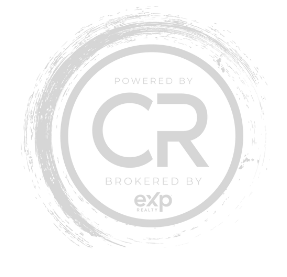- Find the right partners. (use your local affiliates, promote with their info and have them help offset any costs)
- Localize it. (serve your local area!)
- Give them take-home materials. (Download our Canzell Buyers Guide – we make this personalized just for you!)
- Focus on the education. (Make it semi-formal, not too stuffy but keep on track)
- Choose your date, time, and location carefully.
- Target your promotions.
- Know your limit. (Know what you know and have a lender come in and speak about loan products)
- Test it all out first. (Do a trial run with friends/family)
Go over all the good and bad! Open the discussion on common home buyer mistakes and help them to understand how to avoid them!
Home buyers have a lot of questions about the buying process. Especially the first-timers. I know this, because the Home Buying Institute has been fielding questions from readers since 2006 — and there have been a lot of questions over the years.
“Which type of home loan is right for me?” “How much house can I afford?” “What’s the real estate market like right now?” “How do I make an offer?” “Are home prices going up or down?” These are just a few of the questions frequently asked by first-time buyers.
Home buying seminars are a great way to answer these types of questions all at once, in an educational group setting. The primary benefit, from an attendee’s perspective, is that they can ask get answers from a live person. They don’t have this benefit when reading articles or books about the process.
Another great thing about a seminar is that everyone gets something out of it. The attendees receive quality information about the real estate process, and the agent hosting the event gets to showcase his or her expertise in front of prospective clients. It’s a win-win.
Buyers will eagerly attend an educational seminar hosted by a local real estate or mortgage professional.
Let’s look at a quick step by step to how to plan, promote and host this type of event.
- The first thing you need to do is create a presentation of some kind. PowerPoint is the most popular tool, because it’s widely available and fairly easy to use.
- Next, you’ll need to find venue. You can rent a conference room at Regus or ask a local church. Ask your favorite lender to help cover any associated cost. (If you think you’ll have a large audience because you live in a major metro area, consider renting a conference room at a hotel)
- When you have a presentation and venue squared away, you need to start promoting the seminar. Schedule the venue at least a month in advance, so you’ll have enough time to spread the word! (There are so many ways to promote a home buying seminar. Use social media sites (facebook/tik tok/instagram)
- Post a flyer on your blog page or in your fb groups where people can sign up for the seminar. Post plenty of reminders!
- Prepare a handout version of the presentation — something the attendees can take home with them. (Make sure to include your personalized Canzell Buyers Guide!) and make sure to put your bio on the last page.
- Give a great seminar. Get into the details of the home buying process. Bring people up to speed on local market conditions. Offer plenty of examples and anecdotes to reinforce each topic. Tell jokes. Show your personality. Have fun!
- Go easy on the sales pitch. At the end of the seminar, tell people you’d be happy to help them purchase a home. Make your last slide all of your social media pages (including your blog!) These closing remarks, along with the handout and business card, is all the self-promotion you need.
Things to be sure to Include:
- An overview of the home buying process, from financial preparation all the way to closing
- An overview of the mortgage process (pre-approval, GFE, underwriting, conditions, closing)
- The different types of home loans, with pros and cons of each
- How to get the best deal on a loan (credit score considerations, paying points, etc.)
- Current mortgage rates, trends for the last few months, and rate predictions going forward
- The current state of your local housing market (supply and demand, negotiating leverage, etc.)
- The current inventory situation in the area (how easy / hard is it to find a home)
- How to make an offer and negotiate with sellers
- What happens on closing day and how to prepare for it

